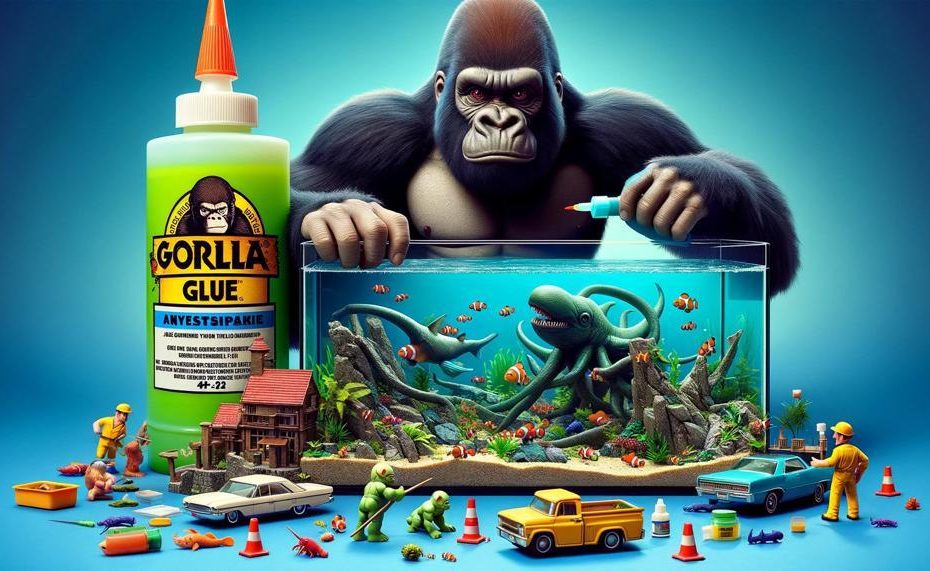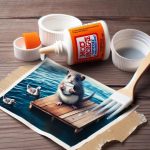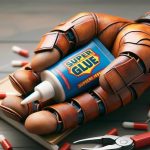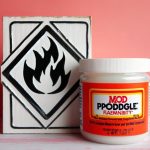Are you considering using gorilla glue in your aquarium, but hesitant due to safety concerns? Look no further. In this blog post, we will delve into the topic and provide you with all the information you need to make an informed decision. Gorilla glue is a popular adhesive known for its incredible strength and versatility, making it a go-to choice for DIY projects.
But is it safe for use in aquariums?
While Gorilla Glue is a well-known glue brand, not all of their products are appropriate for aquarium usage. Aquariums may safely use the Gorilla Super Glue Gel kind of gorilla glue. Selecting glue that is suitable for aquatic life and won’t leak toxic chemicals into the water is crucial when using any kind of adhesive in an aquarium.
Let’s find out.
Table of Contents
- 1 Is Super Glue Safe For Aquariums?
- 2 What Chemicals are in super glue?
- 3 Is Gorilla Super Glue Aquarium Safe?
- 4 Is Loctite Super Glue Aquarium Safe?
- 5 Is Hot Glue Aquarium Safe?
- 6 What Super Glue Is Aquarium Safe?
- 7 Can I Use Any Superglue In An Aquarium?
- 8 Is Super Glue Good For Sealing Aquariums?
- 9 When Not To Use Super Glue In An Aquarium
- 10 Best Use For Super Glue In Aquariums
- 11 Conclusion
Is Super Glue Safe For Aquariums?
When considering using super glue in aquariums, it is crucial to take into account the potential risks. These include the release of toxins into the water, skin and eye irritation, and harm to aquatic life.
To minimize these risks, it is important to use a brand that is safe for aquariums and allow the glue to fully dry before submerging. Additionally, there are alternatives such as aquarium-safe adhesives and mechanical fasteners that can be used to secure decorations and equipment in aquariums.
Possible Risks of Using Super Glue in Aquariums:
- Release of toxins into the water: If not fully cured before submerging, super glue can release toxins that can be harmful to aquatic life.
- Skin and eye irritation: Accidental exposure to super glue can cause irritation or burns on the skin or eyes.
- Harmful to live fish and plants: It is important not to apply super glue directly on live fish or plants as it can be harmful to them.
Safer Alternatives for Securing Decorations and Equipment:
| Alternative | Description | Example |
| Aquarium-safe adhesives | Specifically designed for use in aquatic environments and do not release harmful toxins. | Aquarium silicone sealant, underwater epoxy resin. |
| Mechanical fasteners | Securely attaches decorations and equipment without the use of adhesives. | Suction cups, clips, magnets. |
| Gel glue | Thicker consistency makes it easier to control and apply for repairs or attaching ornaments. | Cyanoacrylate gel glue. |
| Silicone sealant | Creates a watertight seal and is suitable for attaching plants to substrates. | Clear or white silicone sealant. |
What Chemicals are in super glue?
There are several chemicals present in super glue that can pose a threat to the well-being of aquarium inhabitants. These include cyanoacrylate, ethyl-2-cyanoacrylate, and formaldehyde. These compounds are commonly utilized in super glue products and have the potential to be harmful to aquatic life if used improperly. Therefore, it is crucial to thoroughly read and follow the label and usage instructions of any super glue product before incorporating it into an aquarium environment.
Moreover, it is crucial to opt for gel viscosities when using super glue in underwater settings. This will not only ensure a better adherence but also minimize the risk of harm to aquatic creatures. Additionally, it is vital to avoid any additives or toxins that may be present in the adhesive as they can further exacerbate the potential dangers. In case of any uncertainty, it is always advisable to seek guidance from experts to guarantee the safety of your aquatic inhabitants.
It cannot be stressed enough that the chemicals found in super glue must be handled with great care and caution, especially when used in an aquarium setting. By being mindful and taking necessary precautions, you can ensure the well-being of your aquatic creatures and maintain a safe and healthy environment for them to thrive in.
Is Gorilla Super Glue Aquarium Safe?
When it comes to DIY projects and repairs, Gorilla Super Glue is a popular choice. However, using it in aquariums can be risky. The answer to whether it can be used safely is both yes and no.
Let’s take a closer look at the potential dangers and benefits of using Gorilla Super Glue in an aquarium setting.
| The Risks | The Benefits |
| The chemicals in super glue, such as cyanoacrylate, ethyl-2-cyanoacrylate, and formaldehyde, can be harmful to fish and other aquatic life if not used properly. | Gorilla Super Glue is a strong adhesive that can bond quickly and securely, making it a reliable option for repairing aquarium decorations or equipment that may come loose. |
| Using too much super glue or applying it directly to the water can lead to accidental ingestion by fish or other aquatic creatures, causing harm or death. | Gorilla Super Glue is available in a gel form, which has a thicker viscosity and is less likely to spread or drip into the water. |
| Super glue has a long curing time, which can be harmful to aquatic life if not given enough time to fully dry before adding fish back into the tank. | Gorilla Super Glue is a versatile adhesive that can bond various materials commonly found in aquariums, such as plastic, glass, and ceramics. |
Is Loctite Super Glue Aquarium Safe?
Yes, Loctite Super Glue is safe to use in aquariums as long as proper precautions are taken.
This includes selecting the appropriate formula, thoroughly cleaning and drying the area beforehand, using the glue sparingly, allowing ample time for it to dry before introducing aquatic life, and taking additional measures to ensure the safety of the aquarium inhabitants.
Is Hot Glue Aquarium Safe?
Hot glue in an aquarium can be unsafe if not used correctly. Toxicity is a major concern as it can be harmful to your aquatic pets. The adhesion strength of hot glue can also be problematic as it can be challenging to remove once applied.
Moreover, hot glue releases toxic fumes when heated, which can be detrimental to the health of your aquatic pets.
What Super Glue Is Aquarium Safe?
When determining the suitability of super glue for use in aquariums, there are several critical factors to take into account:
- Brand and Labeling: To ensure the safety of aquatic life, it is crucial to select a brand of super glue specifically labeled as aquarium-safe.
- Chemical Composition: Super glue contains a chemical compound known as cyanoacrylate, which forms a strong bond when exposed to moisture. It is important to check that the glue does not contain any harmful additives or chemicals.
- Type of Glue: Two types of glue that are suitable for aquarium use are cyanoacrylate and epoxy glue, as they are resistant to water and chemicals.
- Curing Time: It is essential to allow the glue to dry completely before placing any objects in the aquarium, as this can prevent toxins from being released.
- Safety Precautions: Super glue can cause irritation or burns if it comes into contact with skin or eyes, so it is vital to take safety precautions when handling it.
- Application Process: Precise and careful application is crucial when using super glue in an aquarium setting. Make sure you have all the necessary materials on hand and allow enough time for the glue to cure before disturbing the glued area.
- Alternative Options: If you are unsure about using super glue in your aquarium, there are alternative options available, such as aquarium-safe adhesives and mechanical fasteners.
Can I Use Any Superglue In An Aquarium?
There are two types of super glue that are safe to use in aquariums – cyanoacrylate glue (CA) and epoxy glue. However, it is essential to choose a brand specifically labeled as aquarium-safe, as not all super glues are created equal. Some may contain harmful additives or chemicals that can be detrimental to aquatic life.
Therefore, avoid using super glue that is not explicitly labeled for aquarium use to prevent the release of toxins or harm to your underwater ecosystem.
It is also crucial to avoid using super glue directly on the aquarium itself, as it can weaken the glass or acrylic and compromise its structural integrity. Instead, use it on the substrate or other decor items such as rocks and live plants. For attaching larger pieces of decoration, such as ornaments or rocks, an epoxy glue is a safer option.
| Type of Super Glue | Safety in Aquariums | Recommended Use |
| Cyanoacrylate Glue (CA) | Safe when used properly | Attaching live plants, rocks, and other decor to the substrate or each other; repairing aquarium decorations |
| Epoxy Glue | Safe when used properly | Repairing larger pieces of decor, such as ornaments or rocks; creating or repairing aquarium features like backgrounds or caves |
When using super glue in an aquarium, it is essential to have everything needed on hand before starting. Be careful and precise when applying the glue, and allow it enough time to cure before disturbing the glued area.
It is also worth considering alternative options such as aquarium-safe adhesives or mechanical fasteners for added safety. If you plan to use super glue for aquascaping or repairs, it is best to opt for a gel formula rather than a liquid one.
This type of super glue is more suitable for attaching plants and repairing ornaments, rather than the actual aquarium itself.
Is Super Glue Good For Sealing Aquariums?
Yes, super glue can be used effectively and safely to seal aquariums. However, it is crucial to follow proper steps and precautions to ensure the safety of your aquatic ecosystem.
First, it is important to choose a brand of super glue that is specifically labeled as safe for aquarium use. This will ensure that the glue does not contain any harmful chemicals that could harm your fish or other aquatic life. Once you have chosen a safe brand, it’s time to prepare the surfaces.
Before applying the super glue, make sure to clean the surfaces you want to seal with warm soapy water and dry them with a clean cloth. This will remove any dirt, debris, or oils that could prevent the glue from adhering properly. Now, apply a modest amount of super glue on one surface. There is no need to apply a large amount for it to be effective.
After applying the super glue, bring the two surfaces together and hold them for around 30 seconds. This will allow the glue to bond and create a strong seal. It is important to give it some time to cure before disturbing the glued area. This will ensure that the seal is secure and will not come apart easily.
In addition to sealing aquariums, super glue can also be used for attaching plants. Simply trim any excess roots or dead tissue on the plant, clean the surface you want to attach it to, and apply a small dot of super glue in that location. This method works well for attaching plants to rocks or driftwood.
When Not To Use Super Glue In An Aquarium
When considering using super glue in an aquarium, there are several important factors to keep in mind. These include the type of glue being used, its safety for aquatic environments, and proper application techniques.
To help you navigate these factors, here is a table summarizing the key points to consider:
| Factor | Description | Importance |
| Type of glue | Choose a brand that is specifically labeled as safe for aquarium use. | High |
| Safety for use in water | Check the ingredients list for any harmful additives or chemicals. | High |
| Application techniques | Follow instructions carefully, including properly preparing the area, applying the glue precisely, and giving it enough time to dry and cure. | High |
| Drying time | Allow the glue to fully dry before placing the item in the aquarium. | Medium |
| Gloves and goggles | Wear protective gear while handling super glue to avoid any potential skin or eye irritation. | Low |
| Alternative options | Consider using aquarium-safe adhesives or mechanical fasteners as alternatives to super glue. | Low |
It is crucial to exercise caution when using super glue in an aquarium. While it can be a useful tool for attaching items and repairing decorations, not all super glues are suitable for aquatic environments.
Some may contain harmful additives or chemicals that can be dangerous for aquatic life. Therefore, it is important to choose a brand that is specifically labeled as safe for aquarium use, and to carefully check the ingredients list.
Additionally, proper application techniques should be followed, including properly preparing the area, applying the glue precisely, and allowing enough time for it to dry and cure before placing the item in the aquarium. It is also recommended to wear protective gear while handling super glue to avoid any potential skin or eye irritation.
If super glue is not a suitable option for your aquarium, consider using aquarium-safe adhesives or mechanical fasteners as alternatives.
By considering these factors, you can ensure the safety and well-being of your aquatic pets and maintain a healthy environment in your aquarium.
Best Use For Super Glue In Aquariums
Select an Aquarium-Safe Super Glue
- Look for brands specifically labeled as safe for use in aquariums.
- Check the ingredients list to ensure there are no harmful chemicals or additives that can harm aquatic life.
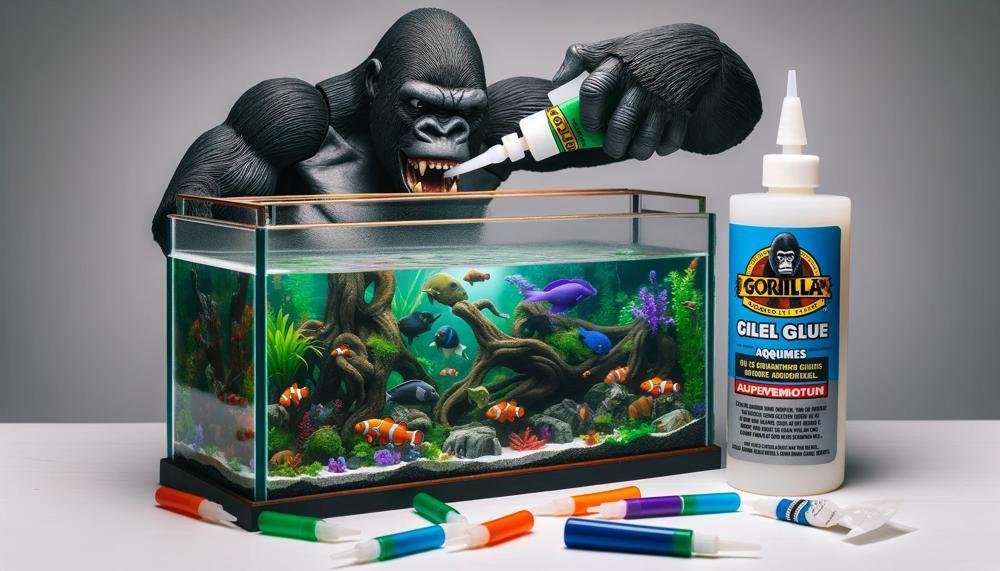
Choose the Appropriate Type of Super Glue
- For larger repairs, liquid super glue may be more suitable while gel super glue is ideal for smaller details.
- Gel super glue also offers better precision and control during application.
Prepare the Area
- Before using super glue, ensure the area is clean and dry.
- Use sandpaper or a file if necessary to roughen up the surface for better adhesion.
Apply Super Glue
- For aquascaping purposes, apply a small amount of gel super glue to a rock or decoration and hold it in place for a few seconds until it sets.
- When repairing decorations in the tank, apply a small amount of liquid super glue to the broken pieces and hold them together until they bond.
Allow Sufficient Drying Time
- It is crucial to let the super glue dry completely before adding water back into the tank.
- Depending on the brand and amount used, this can take anywhere from 15 minutes to an hour.
Avoid Using Super Glue on Live Fish or Plants
- Never use super glue on live fish or plants as it can be harmful to them.
- It should only be used on non-living objects in the aquarium.
Consider Alternative Options
- If super glue is not suitable or safe for your aquarium setup, consider using mechanical fasteners or aquarium-safe adhesives instead.
- While these options may take longer to set, they are much safer for aquatic life.
Conclusion
In conclusion, the use of gorilla glue in aquariums requires careful consideration and preparation.
While some versions of the glue have been deemed safe for underwater use, it is crucial to thoroughly research and understand the specific formula before application. Proper cleaning, application techniques, and curing time are essential for ensuring the safety of your aquatic pets and plants.
Additionally, there are alternative options such as aquarium-safe adhesives and mechanical fasteners that can provide a secure bonding solution. When selecting a super glue for your aquarium, be sure to choose one specifically labeled as safe for aquatic use to avoid any potential harm to your underwater ecosystem.
However, always prioritize the well-being of your aquatic companions above all else.

